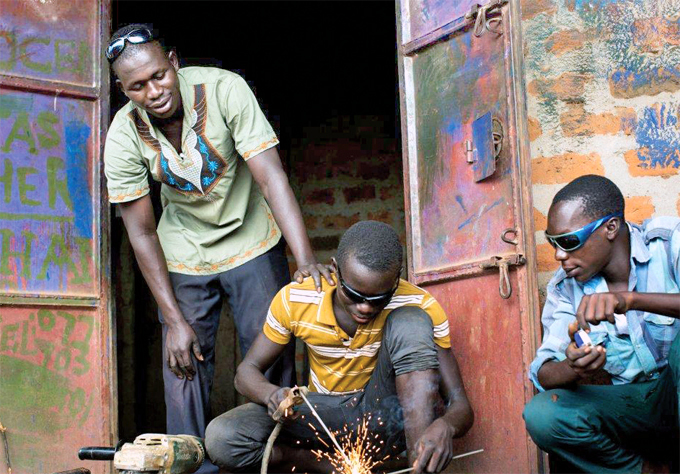World Population day
All about the young people
Jackline Bwire Nabwire is a community health worker in Busia district. She dropped out of school after P7.
The importance of family planning only dawned on her after she began to face difficulty with feeding her seven children.
Her plight was highlighted in a documentary shown at the recent Pre-World Population Day public dialogue, organised by the National Population Council (NPC), with support from the United Nations Population Fund (UNFPA).
"The number of children was increasing, yet the food from the gardens was reducing. So, when I came across a programme that allowed me to start family planning, I embraced it," a shivery voiced Nabwire, now a mentor to other women, narrates how she takes charge of her life and helps others do the same.
"Women were making two-hour-journeys to health centres for family planning, only to find empty shelves or no service providers. So, I was motivated to get trained and provide the services."
World Population Day
Today, we are celebrating the World Population Day. This year's theme ‘Strengthen youth competitiveness for sustainable development' is looking at the youth in general.
This is just what Uganda needs. In fact, Charles Musana, the senior national programme officer at the NPC, has adopted the theme to highlight the challenges that are faced by young people and improve their competitiveness therein.
Musana argues that investing in this age group will guarantee a healthy and skilled human resource.
He further states that if provided with job opportunities, the youth will effectively contribute to harnessing Uganda's demographic dividend.
"A demographic dividend is the accelerated economic growth that may result from a decline in a country's mortality and fertility, and the subsequent change in the age structure of the population," Musana explains.
On a good note, the Population Reference Bureau (PRB) argues that the accelerated economic growth of the demographic dividend remains a possibility for many African nations. CLICK HERE FOR MORE ON THIS STORY
Skilling projects empower youth
By Agnes Kyotalengerire
Eunice Agoa is a resident of Inyaki village in Lira district. The 19-year-old orphan dropped out of school in Primary Seven.
Her future, at the time, looked bleak, until she was introduced to the Empowering Youth for Sustainable Livelihood Project in the area.
She received training as a metal fabricator, then joined Aloi Corner Workshop. For the first three months, her employer paid her sh20,000 per day as a trainee who needed to perfect her skills.
She proved herself and was taken on as a fulltime worker, who pockets 45,000 per day. As a result, she has saved sh350,000, bought four goats, 13 chicken, a mobile phone and can afford decent clothes.
 Youth welders busy at work in Lira District. The Empowering Youth for Sustainable Livelihood project supports 206 youth to develop skills for selfemployment in Uganda
Youth welders busy at work in Lira District. The Empowering Youth for Sustainable Livelihood project supports 206 youth to develop skills for selfemployment in Uganda
In fact, Agoa plans to start her own workshop in the near future. She is one of the several successful youth who have benefitted from the project, currently run in Lira and Alebtong districts.
The project is implemented by Plan International Uganda, in partnership with other organisations.
According to Patrick Ssebbowa Lubowa, the national programme manager of the scheme, the project aims at contributing towards peace, recovery and development in postconflict northern Uganda, by supporting livelihoods and reintegration of the youth.
As we mark the World Population Day, the impact of such programmes on livelihoods, once again, comes into sharp focus.
"The intervention targets to increase access to employment for marginalised young women and men in Lira and Alebtong districts, through foundational, transferable, technical and vocational skills, access to financial services, and stronger representation to and engagement with local and private actors," Ssebowa explains.
He adds: "The project, with funding from European Commission, targets to reach 1,600 young men and women over the project period." CLICK HERE FOR MORE ON THIS STORY
ADVERTISER
DEUTSCHE STIFTUNG WELTBEVOLKERUNG (DSW)